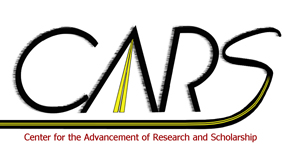Event Title
Lightning Round: Secret Superstars and Otherworldly Wizards: Gender Biased Hiding of Extraordinary Abilities in Girl-Powered Disney Channel Sitcoms From the 2000s
Location
Moakley Auditorium
Start Time
9-5-2018 10:50 AM
End Time
9-5-2018 12:00 PM
Description
Conformity messaging and subversive discursive practices potentially harmful to healthy models of feminine identity are critical interpretations of the differential depiction of the hiding and usage of tween girl characters’ extraordinary abilities (i.e. super/magical abilities and celebrity powers) in Disney Channel television sitcoms from 2001-2011. In-depth evaluation of program content coupled with critical discourse analysis reveals that the young female characters with lead roles in these Disney sitcoms often possessed extraordinary powers that were frequently represented as hidden or secret, whereas male counterparts in similar programs on the same network openly displayed their extraordinariness and the males as having considerable and usually uncontested agency. What is discerned from scripted material on the motivations behind elaborate attempts to hide the extraordinary are the meanings disseminated from the female subject-position representations. These blockbuster sitcoms reveal, despite Disney’s progress towards creating empowered girls, the network is at best locked into tradition.
Lightning Round: Secret Superstars and Otherworldly Wizards: Gender Biased Hiding of Extraordinary Abilities in Girl-Powered Disney Channel Sitcoms From the 2000s
Moakley Auditorium
Conformity messaging and subversive discursive practices potentially harmful to healthy models of feminine identity are critical interpretations of the differential depiction of the hiding and usage of tween girl characters’ extraordinary abilities (i.e. super/magical abilities and celebrity powers) in Disney Channel television sitcoms from 2001-2011. In-depth evaluation of program content coupled with critical discourse analysis reveals that the young female characters with lead roles in these Disney sitcoms often possessed extraordinary powers that were frequently represented as hidden or secret, whereas male counterparts in similar programs on the same network openly displayed their extraordinariness and the males as having considerable and usually uncontested agency. What is discerned from scripted material on the motivations behind elaborate attempts to hide the extraordinary are the meanings disseminated from the female subject-position representations. These blockbuster sitcoms reveal, despite Disney’s progress towards creating empowered girls, the network is at best locked into tradition.
